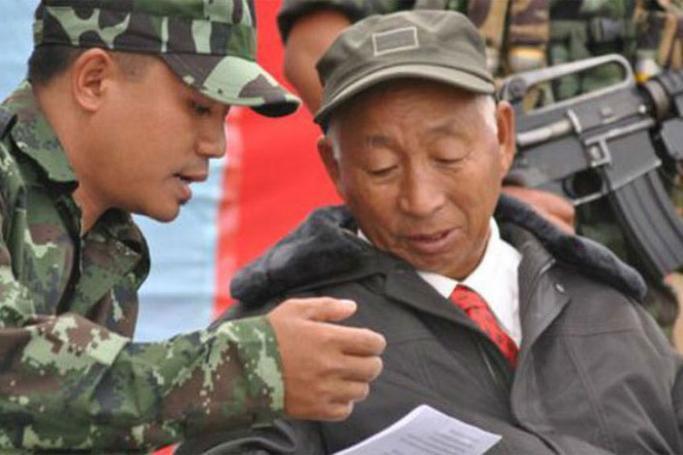In a combative speech, a Naga rebel leader stressed their freedom struggle had come a long way and that they were ready to take on the efforts of Myanmar and India to subdue their ancestral region.
Yung Aung, the Chairman of the National Socialist Council of Nagaland’s (NSCN) or the President of Government of the People’s Republic of Nagaland, delivered a speech at the ceremony of the forty year anniversary of the establishment of the organization in a jungle hideout in Saggaing Region, Myanmar on 31 January.
The ceremony was attended by the political wing and military wing of the Naga organization. The NSCN-K has a force of some 500 fighters based in the Sagaing Region, Myanmar.
The Naga freedom struggle has come a long way, making it one of the longest armed struggles in the world, the chairman of the NSCN told the attendees.
Thousands of men, women and children had laid down their lives for the struggle, after their country was forcibly taken over by India and Myanmar following their independence.
Yung Aung said India and Myanmar had recently drawn closer together, in part due to their respective Act East Policy and Look West Policy, “two sides of the coin” in attempting to subdue the region that Naga people consider as home.
Despite the darkness that lies ahead, he said his people could meet the challenges. He noted the problems over the differences that have caused problems within the Naga community, but called on people to pull together under the banner of “Nagaland for Christ”.
He thanked the various groups in Nagaland for their efforts and service.
The NSCN was formed on January 31, 1980 by Isak Chisi Swu, Thuingaleng Muivah and S.S. Khaplang opposing the 'Shillong Accord' signed by the then NNC (Naga National Council) with the Indian government.
Both Myanmar and India are trying to clear up ethnic conflicts in their hinterlands that they say hinder the path to peace, development and prosperity. Both countries are trying to open up their border areas and increase trade and communications through a number of initiatives and projects.












